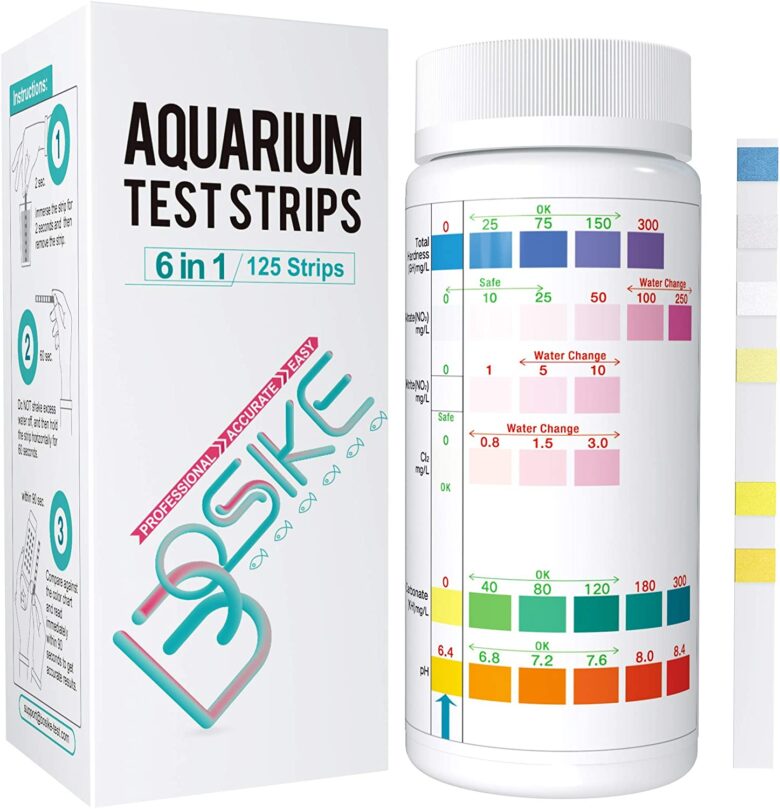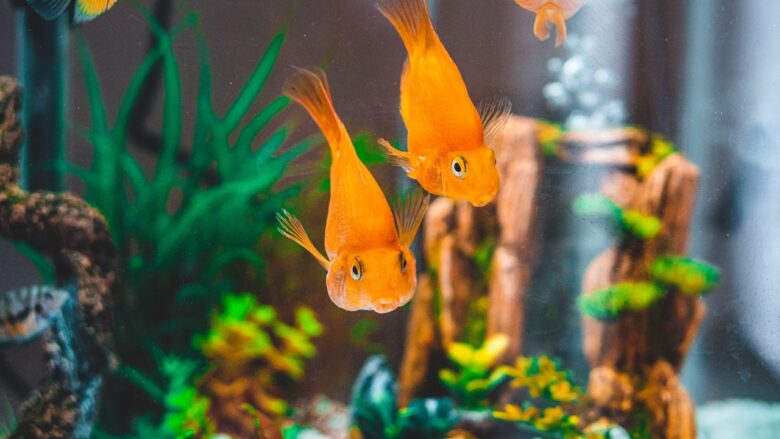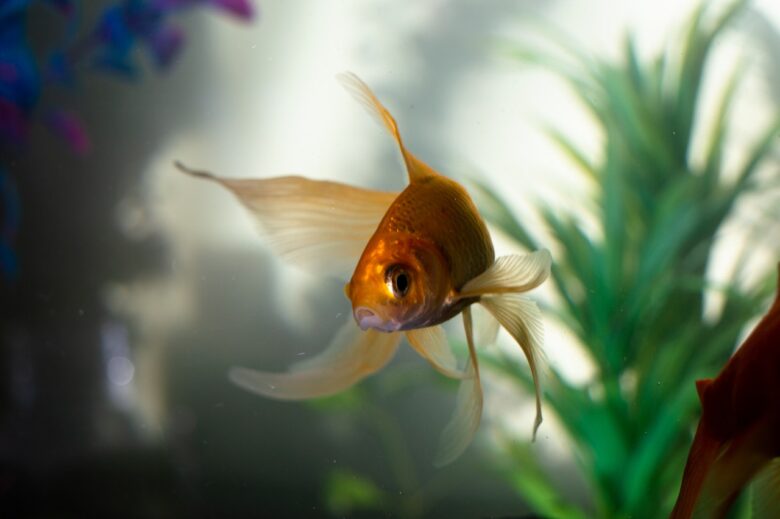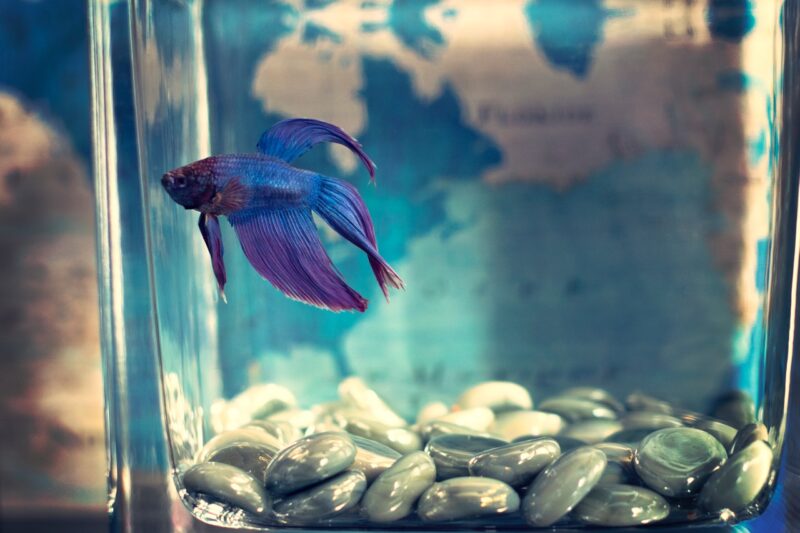Your fish need chemically balanced, nature-like surroundings that will help them live long and healthy lives. Unfortunately, most pet shops fail to provide the right aquarium maintenance tips, often leading to poor quality of life and premature death. The fish you bring home do not deserve that- they’re living creatures too, after all.
Now, handling an aquarium is not rocket science, but it does take some time and effort to be done properly. So, in this article, we’ll provide you with essential tips, tricks, and guidelines for keeping your aquarium healthy and thriving in no time whatsoever!
Let’s get right to it!
1. Never buy the fish tank and the fish on the same day

Every aquarium requires at least a week of careful conditioning to become safe and healthy for the fish that’s going to live in it. Fish cannot survive for long in your regular tap water: it lacks crucial minerals and microorganisms that exist in their natural habitat. Thankfully, most aquariums come with special conditioning supplements and tools required for this week-long process, so you shouldn’t have too much trouble completing this part.
Remember to always speak with the fish-tank suppliers, and ask them about the specific measurements and requirements pertaining to your new aquarium and its “cycling” needs. Once you condition your water and establish those useful bacterial colonies, you can go back to purchase the fish. So, yes, never buy both the tank and the fish on the same day, as cycling the aquarium with the fish already inside can be incredibly dangerous. Instead, give it at least a week of careful conditioning before you start introducing the aquatic life into it.
2. Monitor pH balance and other chemical parameters

If you want your fish to survive for a long time without falling ill, you’ll need to carefully monitor the chemical levels inside of the tank. Fish are incredibly delicate, so even the slightest chemical imbalance can kill them (when exposed for too long). Now, you wouldn’t like it if someone messed up the oxygen levels in your home by replacing it with some kind of toxic, hazardous gas, would you? It’s the same for the aquatic life you’ve decided to grow.
Again, you’ll need the proper aquarium-maintaining tools to get the “chemistry” right. You can get the pH test kit along with nitrate, nitrite, and ammonia testers in most pet stores, so make sure not to forget about them! If you’re doing your shopping online, we suggest taking a look at Amazon where you can find many types of aquarium test strips including Bosike, Tetra, and SJ Wave, to name a few. Note that not all species require the same chemical balance (especially saltwater vs freshwater), so do your research before creating a monitoring routine.
3. Change the water as frequently as you can

After some time passes, no matter how carefully you’re monitoring and balancing the water chemistry, the aquarium is bound to get dirty. Those chemical parameters would then become incredibly difficult to control, which could ultimately lead to an unhealthy environment for your fish.
So, once every few weeks (or less/more, depending on the size), you’ll need to remove around one-third of the dirty water and replace it with a fresh batch. It’s incredibly healthy for your fish, as it will keep their environment pure and free from dangerous toxins.
If you own a particularly large aquarium and you don’t have the time for weekly/bi-weekly water replacements, we suggest you look into mechanical filters and purifiers as well as cleansing supplements to keep your water healthy. Again, frequent water changes are one of the healthiest and easiest ways to ensure perfect chemical balance inside of the tank, so keep those purifying supplements as your last resort.
4. Get rid of the algae
Algae grow quickly and they can be quite an annoyance to deal with. Make sure to remove them as soon as you see them growing on the glass or other structures inside of your aquarium, to prevent further spreading. Of course, while a small number of algae won’t be harmful to the aquatic life surrounding it, as soon as it starts overspreading your fish tank will deal with a serious oxygen problem.
As a general rule, keep your fish tank away from too much light, as it almost guarantees rapid algae growth. Besides, try not to overfeed your fish and reduce the number of nutrients you’re adding to the environment.
If the issue persists, consider getting algae-eating fish to help you deal with the problem. Make sure you’re changing the water frequently enough, and don’t forget to turn off the aquarium lights from time to time.
5. Choose the right species

While you shouldn’t buy your tank at the same time you’re buying your fish, knowing the type of fish you’d want for your aquarium before you go tank-shopping is of the utmost importance. Some fish need extremely large spaces to survive, while others can do just fine in smaller-range tanks.
Remember to do your research and always ask your supplier for advice. Some species simply don’t fit well together, and you should know that before you decide to buy them. Also, keep in mind that some fish can grow larger than it may seem, so you’ll always want to check their adult dimensions.
Overall, proper research is key to a beautiful, healthy aquarium that will act as a perfect home for your new favorite pets! So keep on researching, ask around, talk to your supplier, and read about the fish online before making your purchase.
The bottom line
Keeping your aquarium healthy and clean requires some time and effort on your part. You can’t just fill it with tap water and hope for the best: your fish tank needs constant attention and love. Again, your fish are beautiful, gentle creatures that can’t survive in a harsh environment for too long.
Make sure you follow our tips to provide your aquatic life with the conditions it needs to thrive. We hope our article helped you reach a better understanding of the importance of proper aquarium maintenance, and we wish you luck in your future endeavors.



